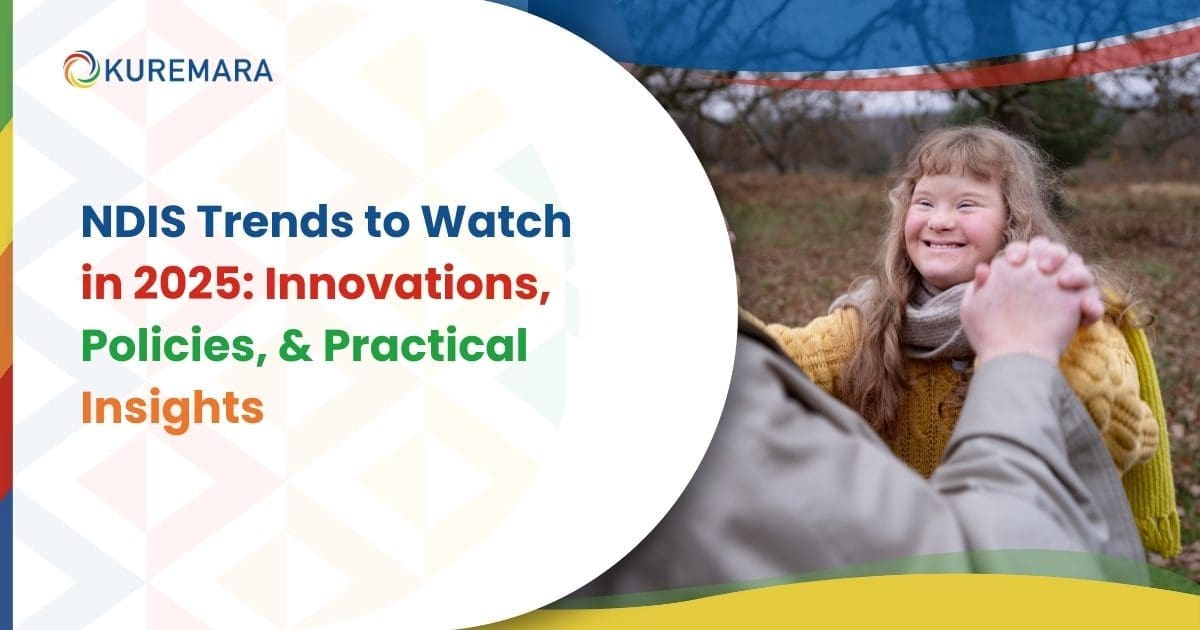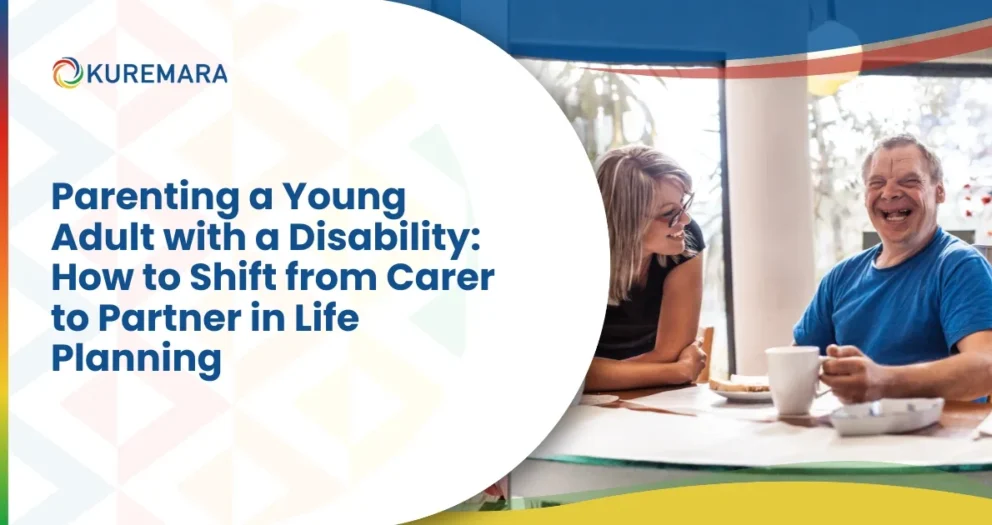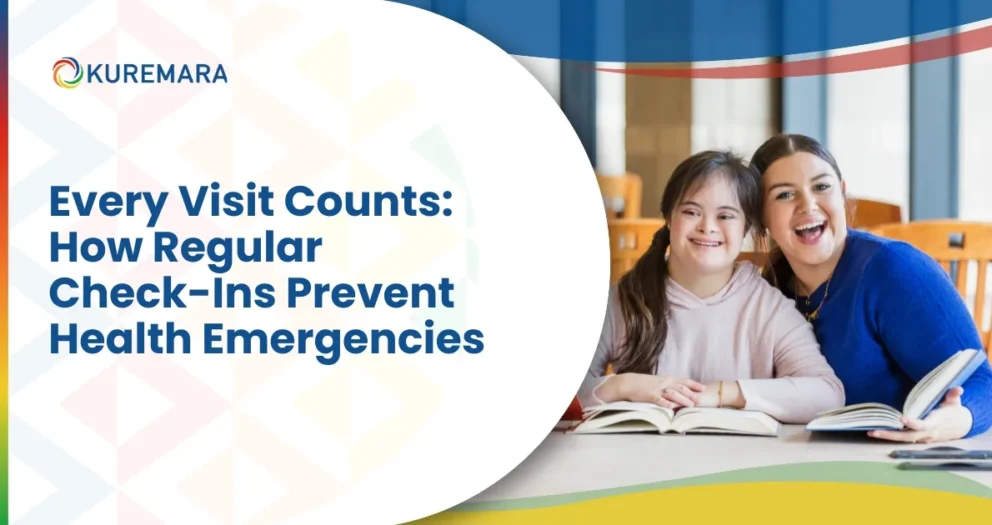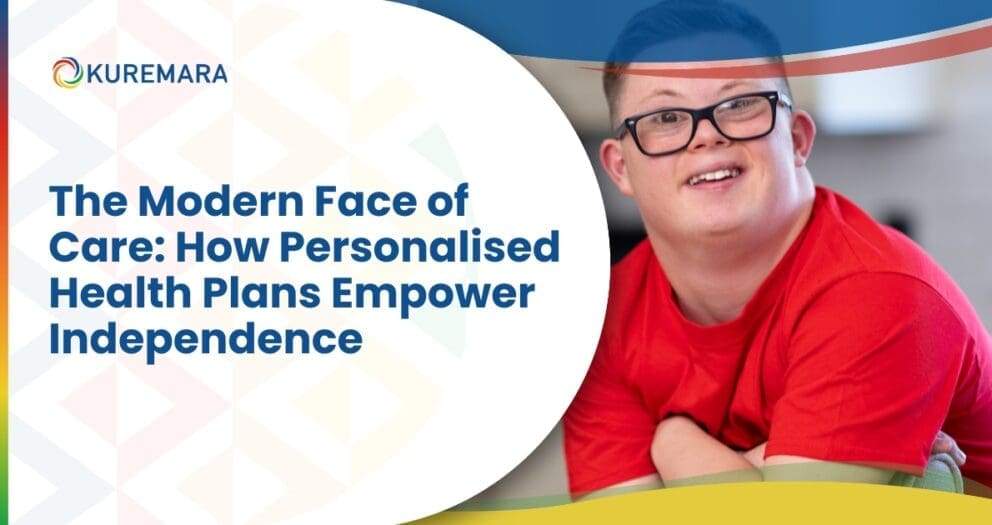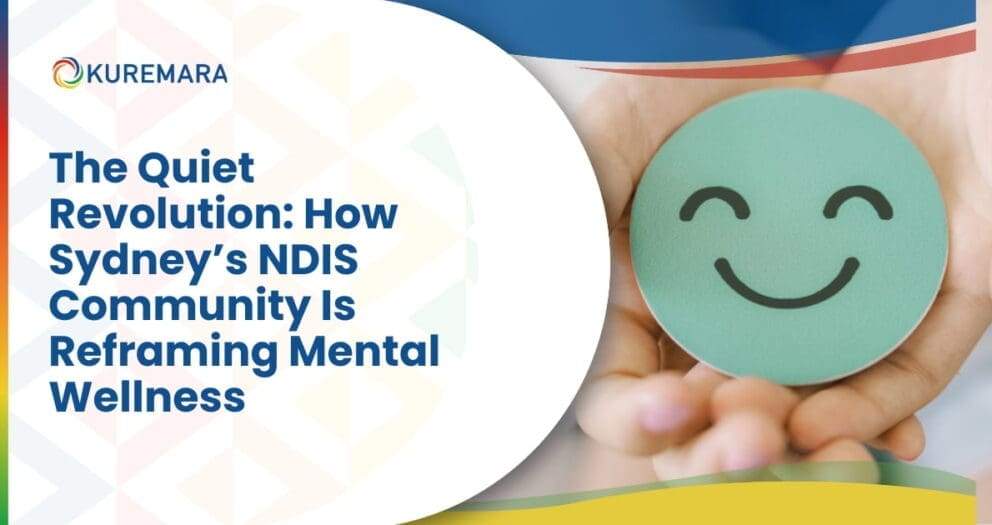As we journey into 2025-26, the National Disability Insurance Scheme (NDIS) stands as a beacon of hope and support for thousands of Australians with disabilities. The dynamic nature of the NDIS means constant evolution to better serve participants, enhance services, and address emerging challenges. At Kuremara, we understand the importance of staying ahead of these changes. In this blog, we delve into the updated NDIS policies for 2025-26, exploring groundbreaking innovations, and sharing actionable insights to help participants and providers navigate this new era with confidence.
Updated NDIS Policies for 2025-26: Key Changes and Their Impacts
The National Disability Insurance Agency (NDIA) has rolled out significant policy updates for 2025-26, focusing on streamlining processes, enhancing participant outcomes, and fostering a stronger support ecosystem. Here are the major changes you should know about:
1. Prioritising Individualised Funding Plans

The 2025-26 policies emphasise a greater focus on tailoring funding plans to meet the unique needs and goals of each participant. The enhancements include:
-
- Greater Flexibility: Participants can customise their plans to reflect their aspirations and priorities.
-
- Simplified Adjustments: Making changes to plans is now faster and more transparent.
-
- Personalised Outcomes: Funding allocations align more closely with individual objectives.
For detailed information, refer to the NDIS Operational Guidelines.
Kuremara’s Perspective: Personalisation is the cornerstone of impactful disability services. This shift empowers participants to take control of their lives and make decisions that truly reflect their aspirations. For providers, the challenge lies in adapting to this more flexible model while ensuring compliance and quality.
2. Streamlining Plan Reviews
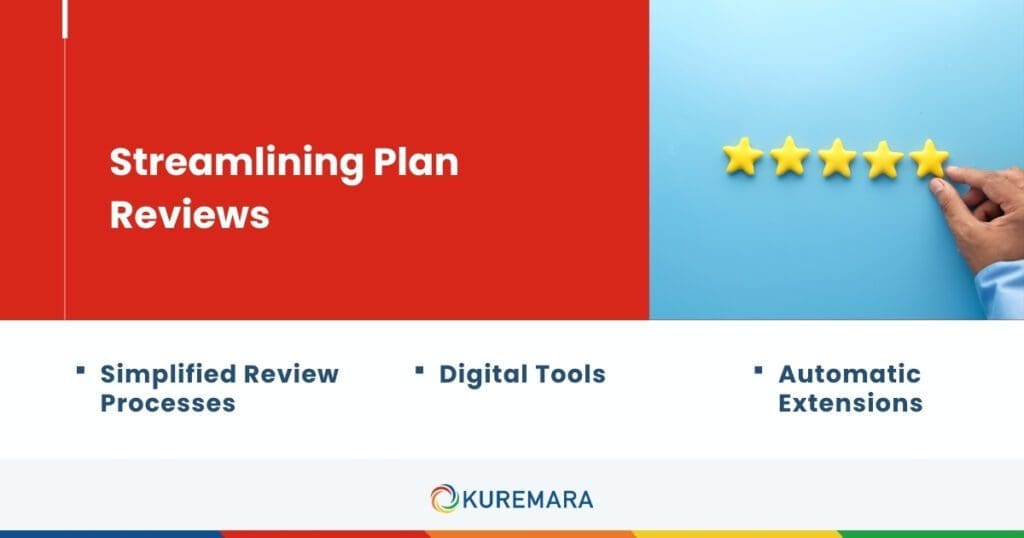
One of the common pain points for participants has been delays in plan reviews. To address this, the NDIA has introduced:
-
- Simplified Review Processes: Clearer guidelines and fewer administrative hurdles.
-
- Digital Tools: Online platforms to expedite submissions and approvals.
-
- Automatic Extensions: Temporary extensions for expiring plans to avoid gaps in support.
Learn more about the streamlined review process in the NDIS Plan Review Guidelines.
Kuremara’s Perspective: These changes will minimise disruptions and provide a more seamless experience for participants and their families.
3. Investing in Workforce Development
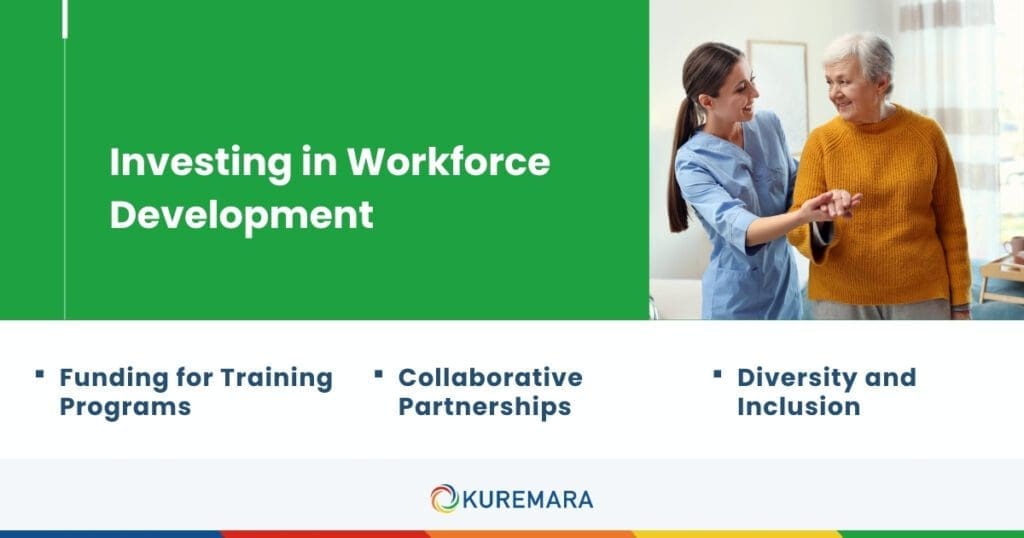
Acknowledging the critical role of support workers, the NDIA is focusing on building a skilled and diverse workforce. Key initiatives include:
-
- Funding for Training Programs: Providers can access grants to upskill their teams.
-
- Collaborative Partnerships: Encouraging joint efforts between providers and training organisations.
-
- Diversity and Inclusion: Promoting representation across cultural, linguistic, and gender lines.
Details on workforce initiatives are available in the Disability Support Workforce Plan.
Kuremara’s Perspective: A skilled workforce is essential for delivering quality disability services in Australia. At Kuremara, we’re leveraging these initiatives to ensure our team is equipped to provide the best possible care.
4. Strengthening Safeguards and Quality Standards
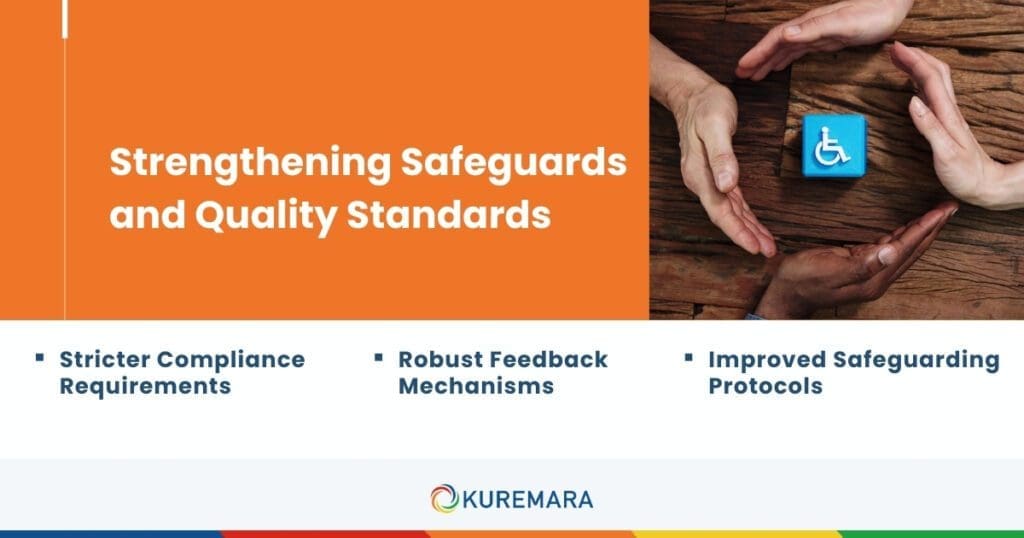
The new policies include enhanced measures to ensure participant safety and uphold service standards. Highlights include:
-
- Stricter Compliance Requirements: Providers must meet higher benchmarks for quality and accountability.
-
- Robust Feedback Mechanisms: Participants and families can share their experiences more effectively.
-
- Improved Safeguarding Protocols: Additional protections for vulnerable participants.
More information can be found in the NDIS Quality and Safeguards Framework.
Kuremara’s Perspective: These updates build trust in the NDIS, reassuring participants and families that their well-being is prioritised.
Innovations Shaping the Future of the NDIS
Innovation is at the heart of transforming disability services. In 2025-26, we’re witnessing technological advancements that are reshaping the NDIS landscape. Let’s explore the most exciting developments:
1. Assistive Technology Redefined
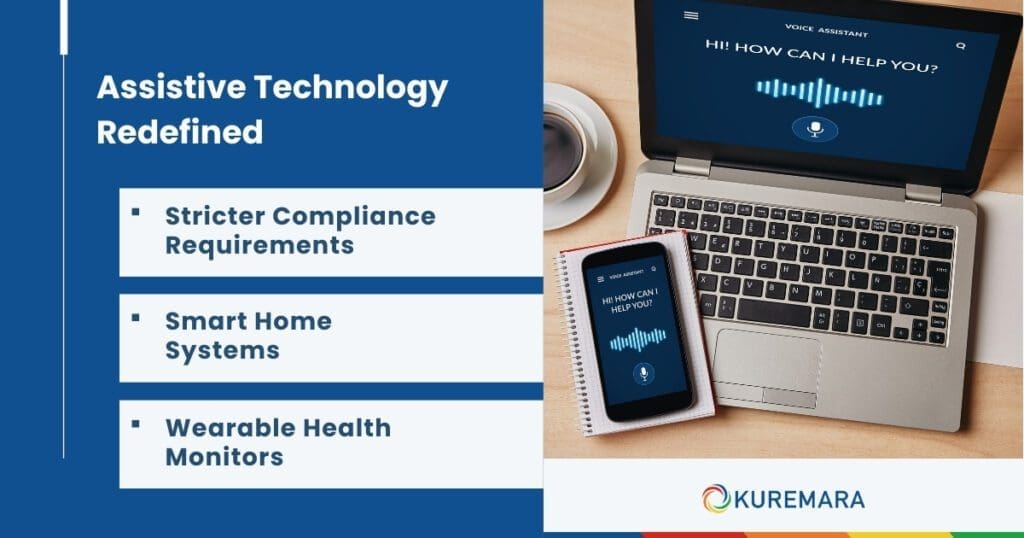
The rapid evolution of assistive technology (AT) is empowering participants to live more independently. Key innovations include:
-
- AI-Powered Communication Devices: Helping individuals with speech impairments communicate effectively.
-
- Smart Home Systems: Voice-activated tools for controlling lights, appliances, and more.
-
- Wearable Health Monitors: Devices that track vital signs and provide emergency alerts.
Example: Imagine a participant using a smart home system to turn on lights and lock doors—tasks that were once barriers to independence.
2. Digital Transformation in Plan Management

Managing NDIS plans has become more intuitive, thanks to digital advancements. Participants can now benefit from:
-
- Real-Time Budget Tracking: Mobile apps that provide updates on fund usage.
-
- Improved Communication Platforms: Seamless interactions between participants and providers.
-
- Virtual Support Options: Remote consultations that save time and effort.
3. Data-Driven Personalised Care
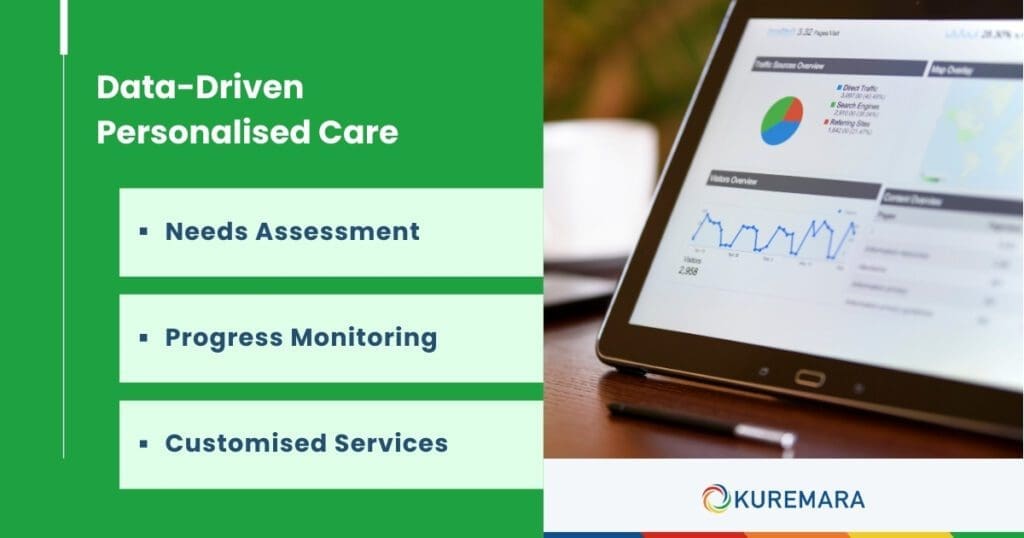
Harnessing data analytics has become a game-changer for providers. Benefits include:
-
- Needs Assessment: Identifying participant requirements with precision.
-
- Progress Monitoring: Tracking outcomes to adjust strategies.
-
- Customised Services: Offering tailored solutions based on data insights.
Technology should complement the human touch. At Kuremara, we are using these tools to enhance our personalised approach but not replace it.
4. Telehealth and Remote Support
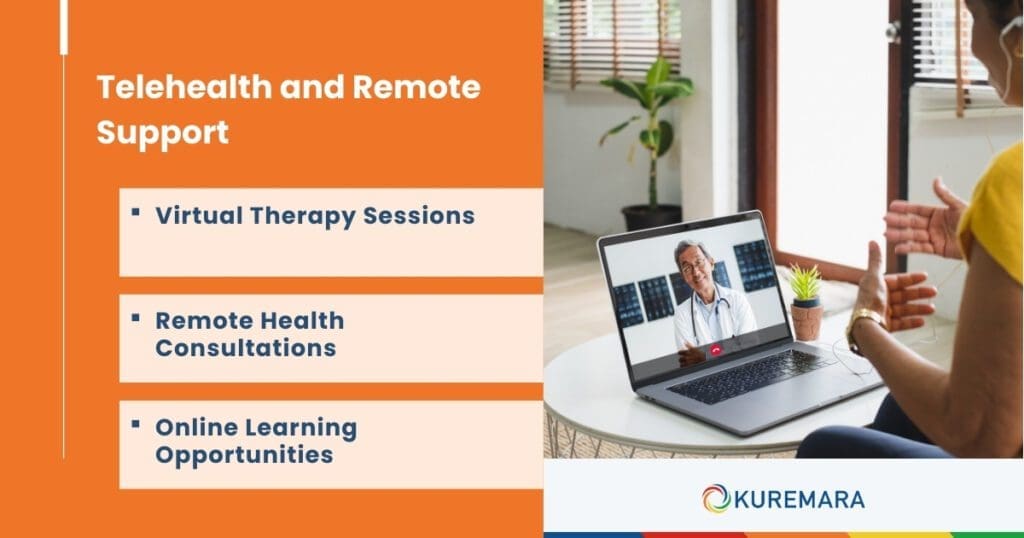
The pandemic highlighted the value of telehealth, and it remains a critical component of disability services. Participants now have access to:
-
- Virtual Therapy Sessions: Convenient and accessible from anywhere.
-
- Remote Health Consultations: Addressing medical needs without travel.
-
- Online Learning Opportunities: Skill-building programs delivered online.
Kuremara’s Perspective: These options are especially beneficial for participants in rural and remote areas, breaking down geographical barriers.
Practical Tips for Thriving in 2025-26
Whether you’re a participant, a family member, or a provider, staying ahead of the curve is vital. Here are our top recommendations:
For Participants:
- Stay Informed: Regularly review updates to your NDIS plan and understand your rights.
- Explore Assistive Technologies: Identify tools that align with your needs and goals.
- Communicate with Providers: Build strong relationships with your support team to ensure they understand your aspirations.
For Providers:
- Focus on Workforce Development: Invest in training programs to meet new standards.
- Leverage Technology: Adopt digital tools to improve service efficiency and participant satisfaction.
- Ensure Compliance: Stay updated on regulatory changes to maintain high-quality services.
Conclusion
As we embrace 2025-26, the NDIS continues to evolve, driven by updated policies and innovative technologies. These changes promise to create a more inclusive, supportive, and effective system for participants and providers alike. At Kuremara, we are dedicated to helping participants achieve their goals by staying ahead of industry trends and leveraging our expertise to deliver exceptional support.
If you’re looking for a trusted registered NDIS provider, Kuremara is here for you. Let’s work together to navigate the future of the NDIS and create meaningful, positive change.
 care@kuremara.com.au
care@kuremara.com.au
